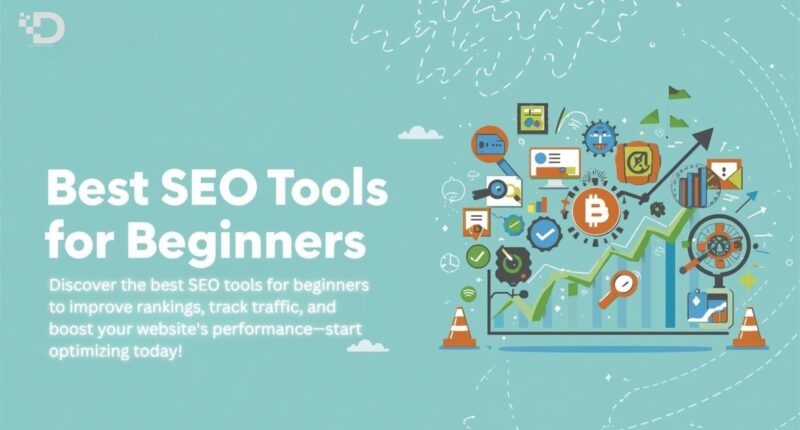Best SEO Tools for Beginners
If you’re just getting started with search engine optimization, it might feel overwhelming at first. The good news is that there are several powerful yet beginner-friendly SEO tools that can help you understand your website’s performance, improve your rankings, and grow your traffic — even if you’re not a tech expert. In this guide, we’ll explore the best SEO tools for beginners in 2025 that offer ease of use, clear data, and great support.
Why You Need SEO Tools
Before diving into the tools themselves, let’s quickly go over why SEO tools are essential for beginners.
Benefits of SEO Tools:
-
Keyword Research: Find out what people are searching for.
-
On-Page Optimization: Improve page titles, meta descriptions, and content.
-
Technical SEO: Identify and fix crawl errors and speed issues.
-
Backlink Tracking: Understand who links to your site and the quality of those links.
-
Competitor Analysis: Learn what’s working for others in your niche.
Now that you understand the importance, let’s explore the best tools you can start using today.
Top 7 Best SEO Tools for Beginners
1. Google Search Console (Free)
Best for: Understanding how your site performs on Google.
Google Search Console is a must-have for all website owners. It provides data directly from Google about how your site is crawled and indexed. You can track keyword rankings, see your website’s search performance, submit sitemaps, and fix indexing issues.
Why beginners love it:
-
Free and easy to set up
-
Clear visual data
-
Direct communication from Google about site problems
2. Google Analytics (Free)
Best for: Analyzing website traffic and user behavior.
Although not strictly an SEO tool, Google Analytics is vital for understanding how visitors interact with your site. Track where your traffic comes from, what pages are most visited, and how users move through your site.
Key features:
-
Audience insights
-
Behavior tracking
-
Conversion monitoring
3. Ubersuggest by Neil Patel (Freemium)
Best for: All-in-one SEO tool for keyword research and site audits.
Ubersuggest offers a very beginner-friendly interface and is great for keyword research, competitive analysis, and basic SEO audits. The free version gives you a good amount of data, while the paid version is budget-friendly compared to other tools.
Highlights:
-
Keyword ideas with search volume and SEO difficulty
-
Domain analysis
-
Site audit tool with SEO score and suggestions
4. Yoast SEO (Free + Premium)
Best for: On-page SEO for WordPress users.
If you’re using WordPress, Yoast SEO is a plugin that helps you optimize your content right from the editor. It gives you real-time feedback on readability, keyword usage, meta descriptions, and internal linking.
Why it’s great for beginners:
-
Traffic light system (green = good!)
-
Easy integration with WordPress
-
Snippet preview tool
5. Answer the Public (Freemium)
Best for: Discovering content ideas and long-tail keywords.
Answer the Public takes keyword suggestions to another level by generating actual questions people ask related to a specific topic. This helps beginners create content that answers real user queries.
Use cases:
-
Blog post ideas
-
FAQ content creation
-
Voice search optimization
6. Screaming Frog SEO Spider (Free up to 500 URLs)
Best for: Technical SEO and site audits.
Screaming Frog scans your website and gives you a full SEO report. It can find broken links, missing meta tags, duplicate content, and much more. While it sounds technical, the interface is user-friendly with a bit of guidance.
Beginner tips:
-
Start with a small crawl
-
Use filters to find easy wins
-
Learn what each SEO element means (the tool explains a lot)
7. SEMrush or Ahrefs (Paid with Trials)
Best for: Long-term SEO growth and deeper analysis.
If you’re serious about SEO and willing to invest, SEMrush and Ahrefs are two of the most powerful tools on the market. They provide detailed insights into keywords, backlinks, competitors, and overall site health. While they come with a learning curve, both platforms offer beginner tutorials.
Why they stand out:
-
Massive keyword databases
-
Comprehensive competitor analysis
-
Regular SEO training resources
Final Thoughts: Start Simple, Grow Steady
SEO doesn’t have to be complicated — especially when you have the right tools. As a beginner, start with free tools like Google Search Console, Google Analytics, and Ubersuggest. As you grow more confident, explore plugins like Yoast SEO and gradually move into more advanced platforms like Ahrefs or SEMrush.
The key is consistency: check your SEO regularly, create useful content, and keep learning.
If you’re ready to start your SEO journey or need help managing your tools, check out more tips at
👉 https://digitalnew.it.com









